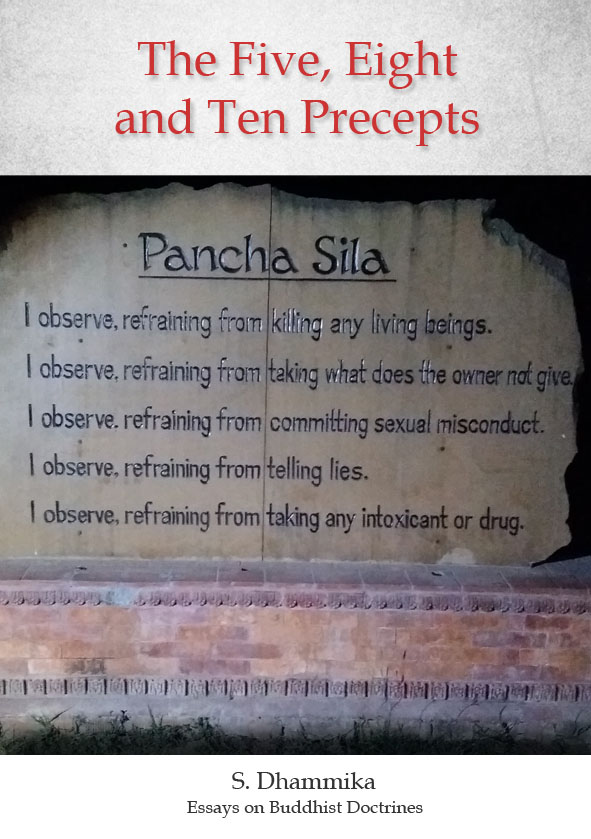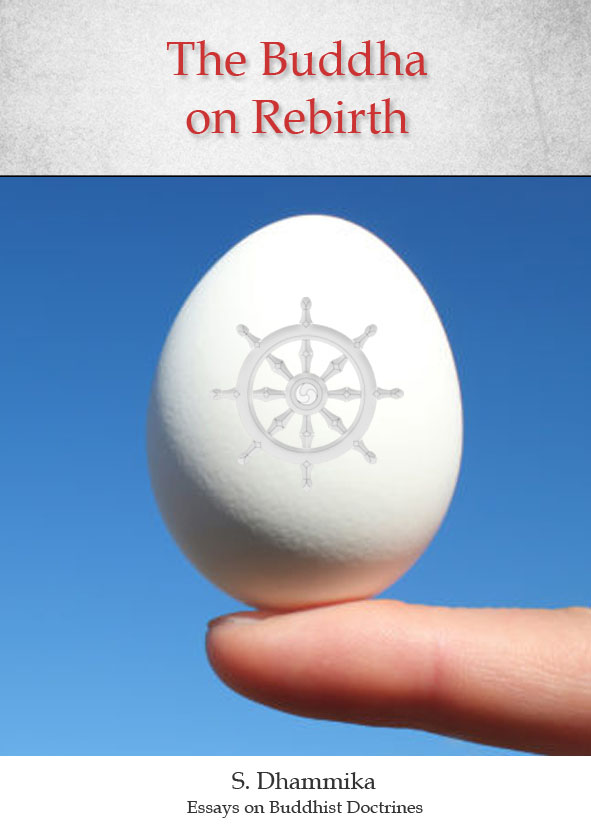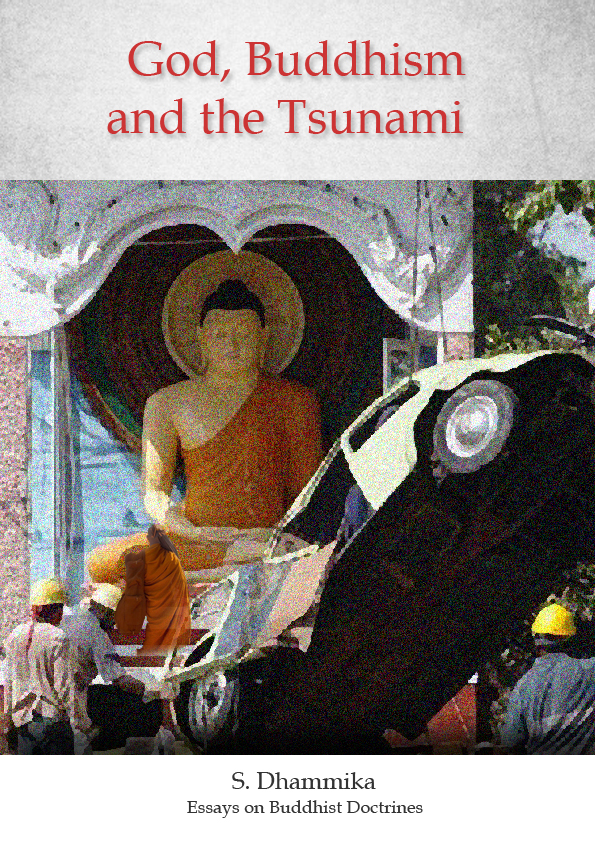
The transference of merit is the belief that it is possible to do good and then ‘transfer’ the kammic result (vipāka) of that good to a person who has passed away. This belief is current in all countries where Theravada … Read the rest

Recently a friend asked me whether the Buddha had anything to say about criticism, speech pointing out the negative or the defective in things or persons. When I told him he was rather surprised, saying that he thought criticism would … Read the rest

A precept (sikkhapada) is a self-imposed rule or discipline. The moral rules that all Buddhists commit themselves to and try to live by are called the five Precepts (panca sila). They are (1) not to harm … Read the rest

The first Buddhists regarded life (jiva) as a process of consciousness moving through a succession of bodies, death being only a momentary event to this process. This phenomenon is sometimes called ‘moving from womb to womb’ (Sn.278) or more precisely, … Read the rest

Some years ago while visiting my younger brother in France he, his family and I made a day trip to the small town of Vaison-la-Romaine in the south-east of the country. The river that divides the town is spanned by … Read the rest

The recent tsunami, the greatest natural disaster in living memory, has given rise to a great deal of soul-searching, not to say ‘theological’ searching. People are struggling to explain the disaster within the context of their religious beliefs. The English … Read the rest

Buddhism teaches causation, that the whole universe is a web of interrelated causes and effects. There are two types of causation – natural causation and moral causation. Natural causation has nothing to do with people being good or bad, it … Read the rest

Recently there has been widespread discussion in Singapore about the pros and cons of euthanasia. The government originally broached the subject, probably in response to rising health costs, and various medical and religious bodies have given their opinions on the … Read the rest

The Vejjavatapada is a vow or oath to be taken by Buddhist doctors and other professionals working with the sick. It is derived from statements attributed to the Buddha and dating from between the 5th and 3rd centuries BCE. The … Read the rest

Recently there has been some discussion in the newspaper about the Buddhist doctrine of anatta. In one letter written in response to an article by Prof. Carlo Fonseka, Mr. Leo Fernando mentioned that he failed “to comprehend the logic … Read the rest
